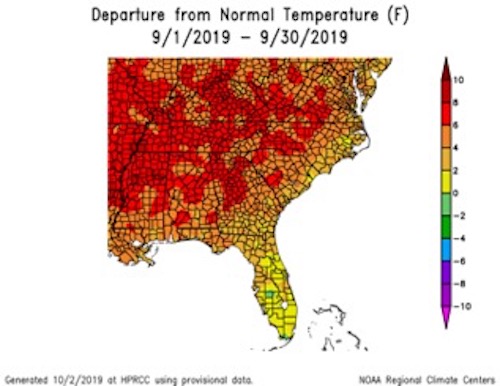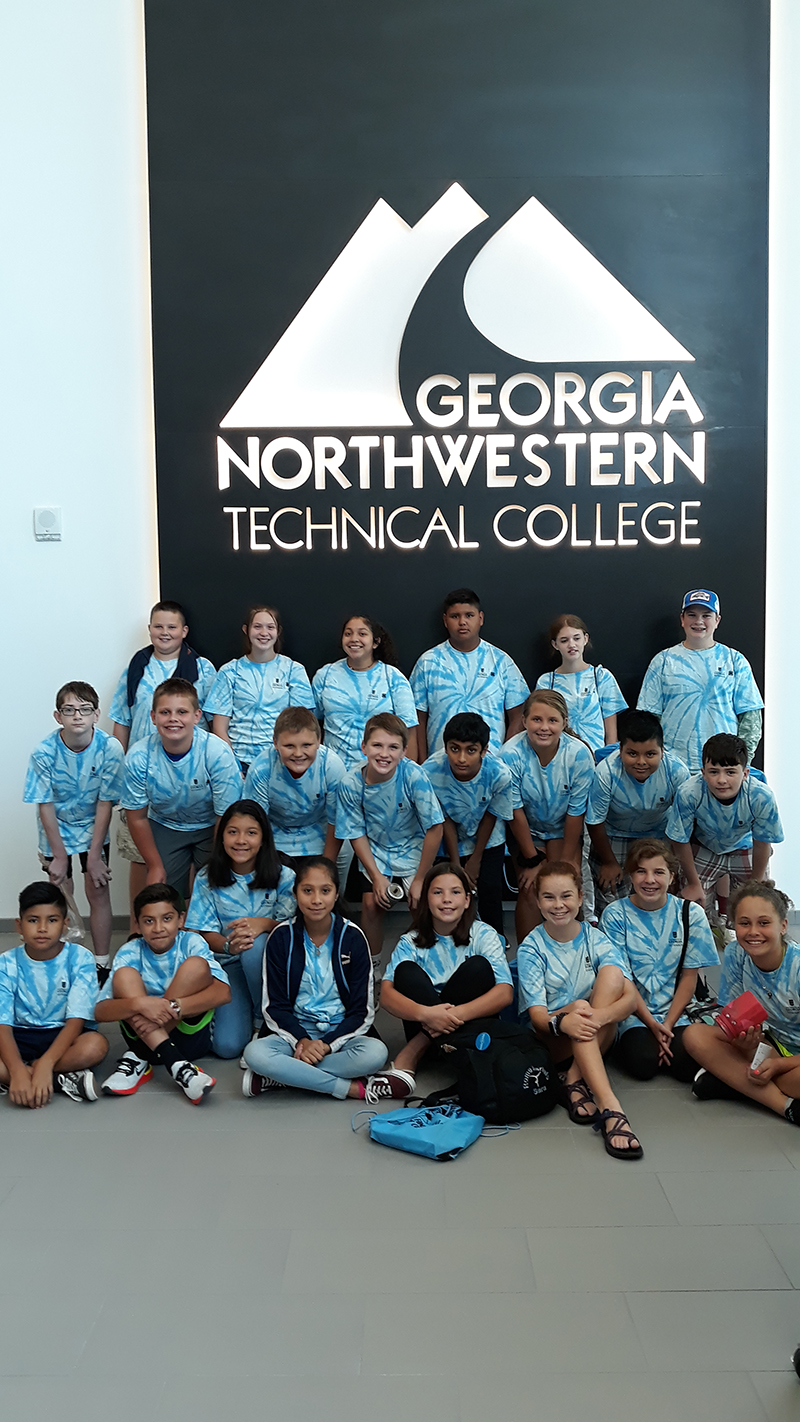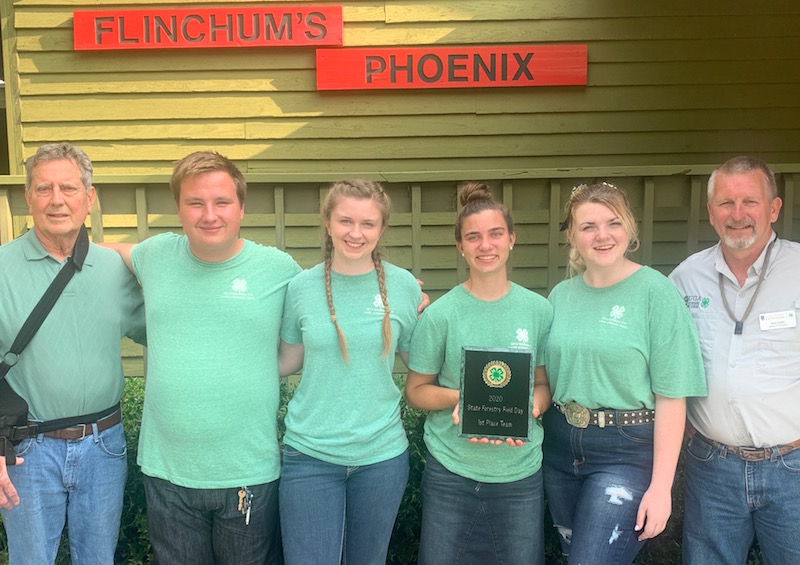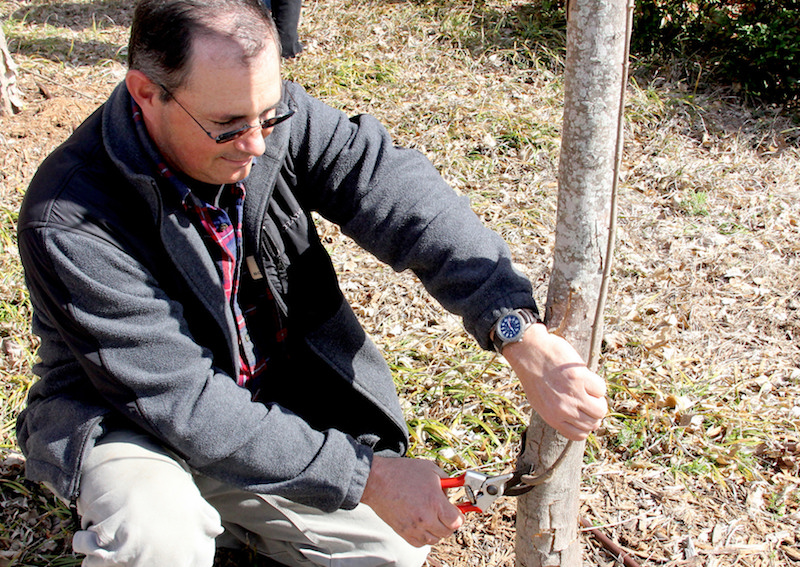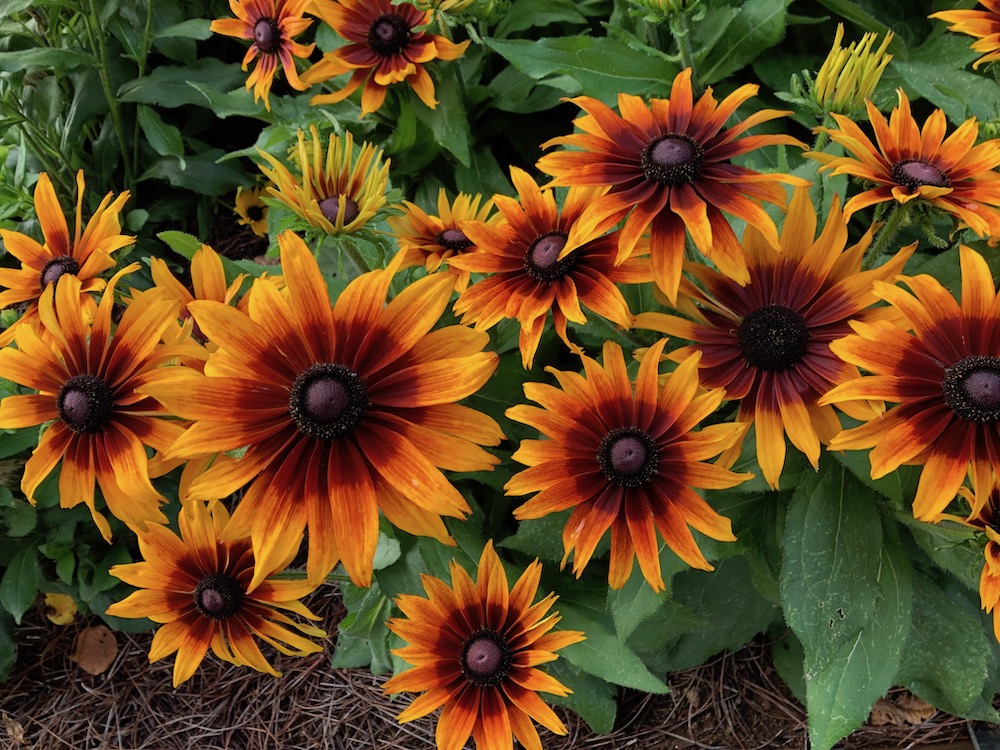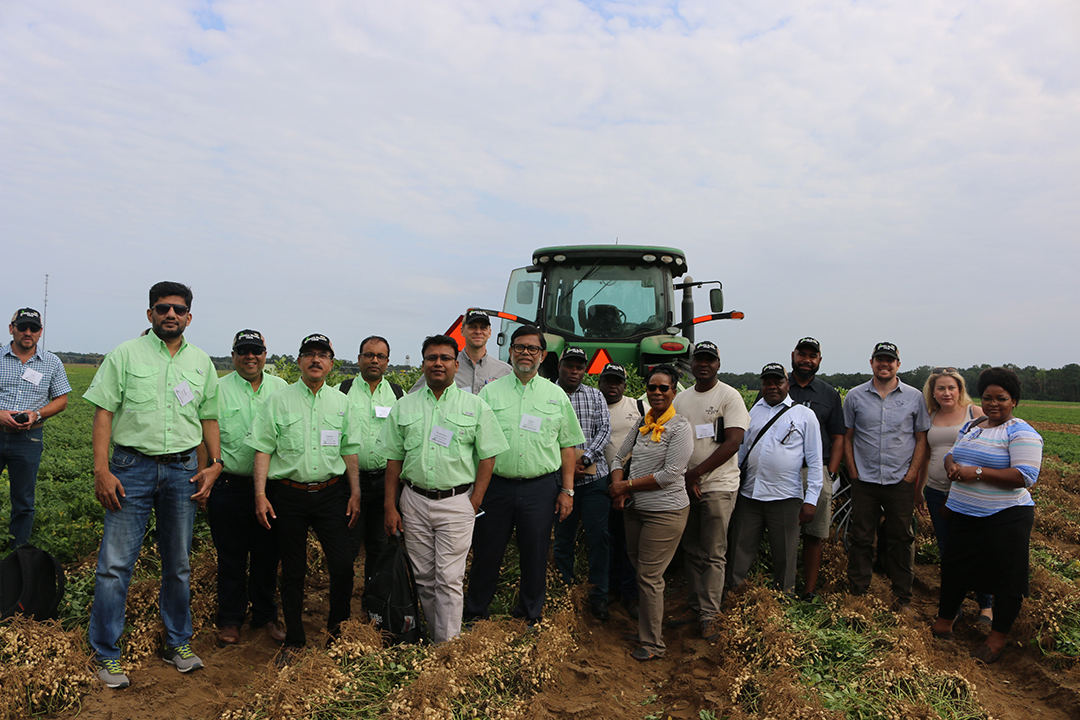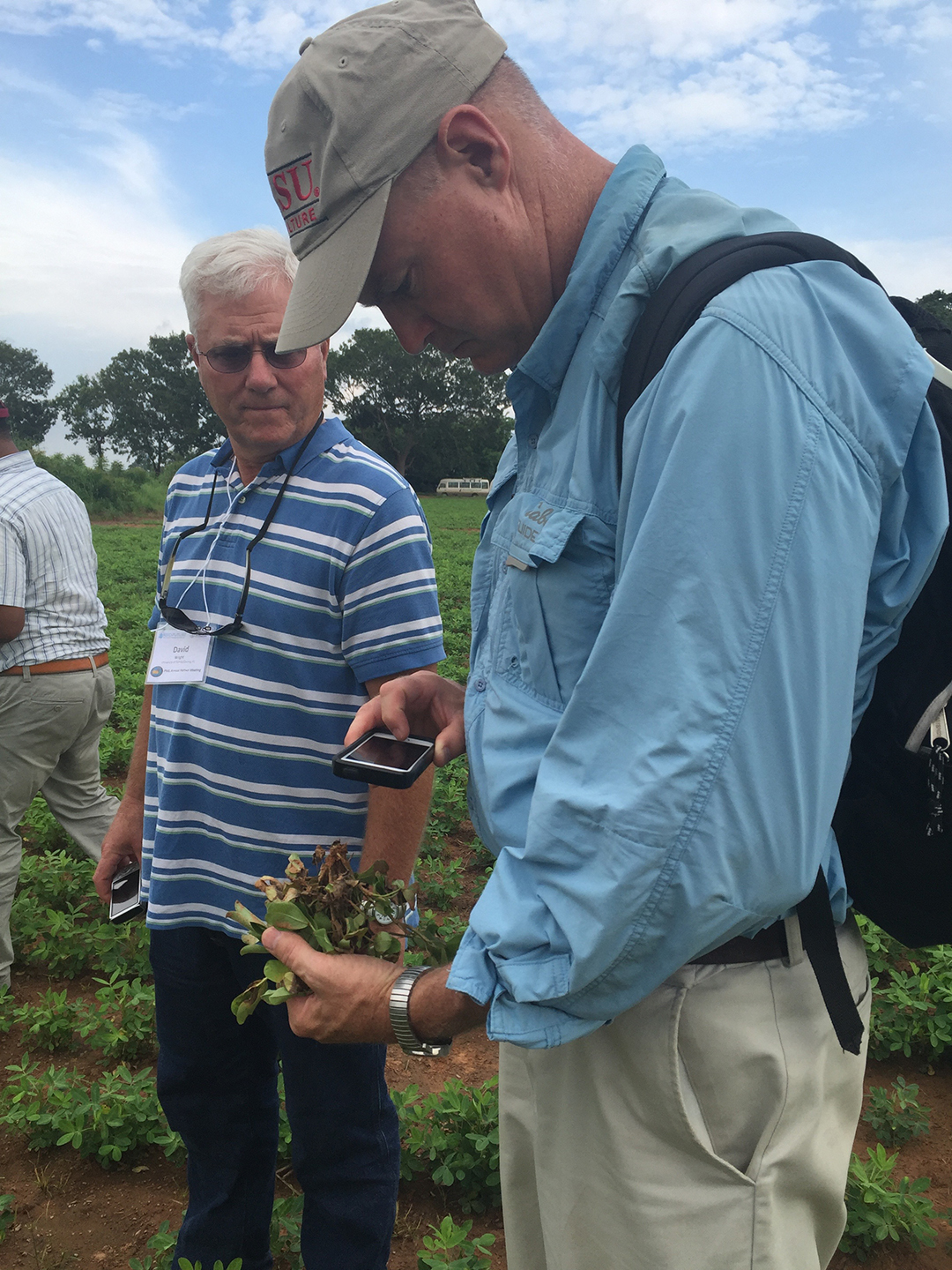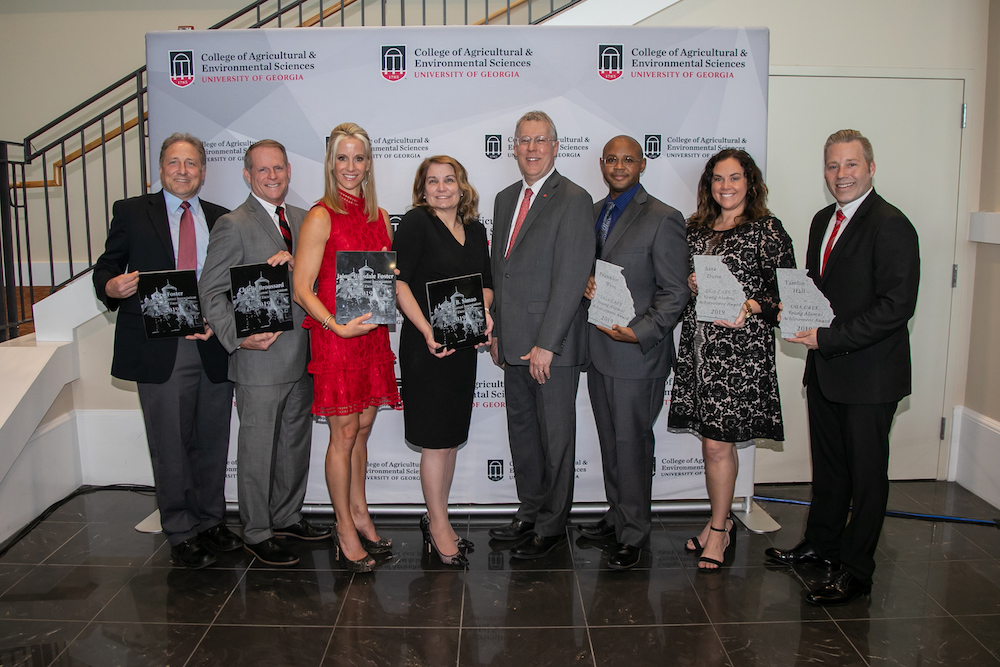 CAES News
CAES News
CAES Alumni Association recognizes outstanding college alumni on Oct. 4
The CAES Alumni Association presented the 2019 awards at the 65th University of Georgia College of Agricultural and Environmental Sciences (CAES) Alumni Association Awards banquet on Oct. 4 at the Classic Center in downtown Athens, Georgia.

